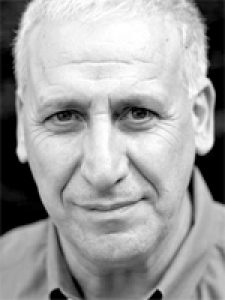
Dr. Edward Hirsch has devoted his life to advocating poetry. He is the author of nine volumes of poetry, most recently Gabriel: A Poem. He is the author of five books of prose, including How to Read a Poem an Fall in love with Poetry—a national bestseller. He is the president of the John Simon Guggenheim memorial Foundation, and the recipient of both MacArthur and Guggenheim Fellowships.
He will deliver a lecture on the nature of reading poetry, the interchange between the poet, the poem, and the reader.
Dr. Hirsch was kind enough to answer a few questions in regards to his upcoming visit.
What originally drew you to poetry? Was there a specific experience with poetry that crystalized for you the transformative power of poetry?
I was first drawn to poetry out of emotional desperation. As a teenager, I was overwhelmed by feelings I didn’t understand and I gravitated toward poetry as a way to try to describe the intensity of what I was feeling. I wasn’t writing poems, I was writing expressive lines.
It was after I started college that I began to see the connection between reading and writing poetry. I fell in love with the English Metaphysical poets. I loved the way they structured arguments. I started to try to do that myself. That’s how I stumbled into the realization that the poet is a maker and the poem is a made thing.
Your book How to Read Poetry came out in 1999. Between then and now, the world has transformed in unimaginable ways. Do you feel your book is more important now than when it was first published? And how have you observed America’s culture of poetry and literature change in that time?
I can’t speak to the importance of my own book. But I still recognize the need for an intervention. I still believe that poetry speaks to our inner lives in necessary ways. And I believe that we need poems to help us clarify our response to the world.
The news cycle is even more intense now. Everything is even more distracting. Poems help to focus our attention. The good news is that it turns out that a lot of social media is quite good for disseminating poetry. The bad news is that it doesn’t encourage people to take much time and pay attention.
The first poem I encountered of yours was “For the Sleepwalkers.” It was in my senior year of high school and I was struck by how in the opening line you declare your desire to “say something wonderful.” Do you feel that is the proper function of poetry: to say something wonderful? If so, are you comfortable being classified as a romantic?
I loved the challenge of the first line in “For the Sleepwalkers,” I’m glad you responded to it. I would say that saying something wonderful is just one of the tasks of poetry. Perhaps it’s equally important to say something deep. I’m comfortable, in any case, with the designation as a romantic poet. I’d love to be able to continue the American romantic line, which runs from Whitman through Stevens, Crane, and Bishop.
Leave a Reply